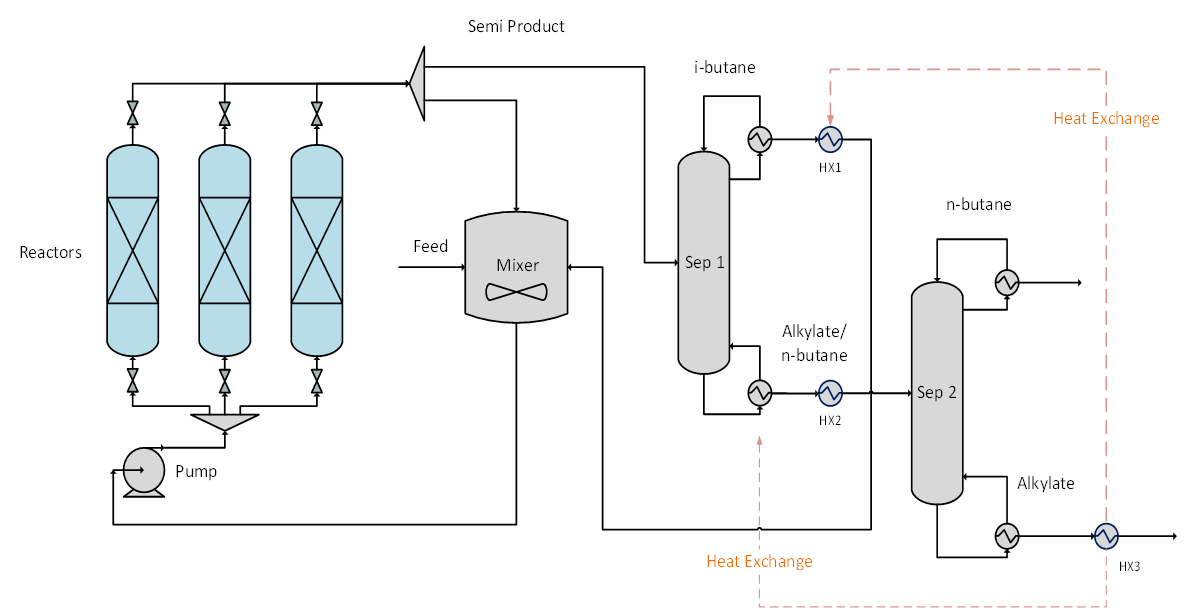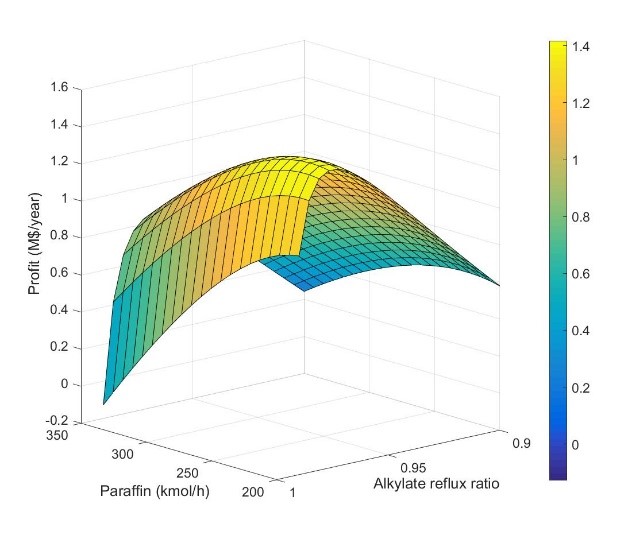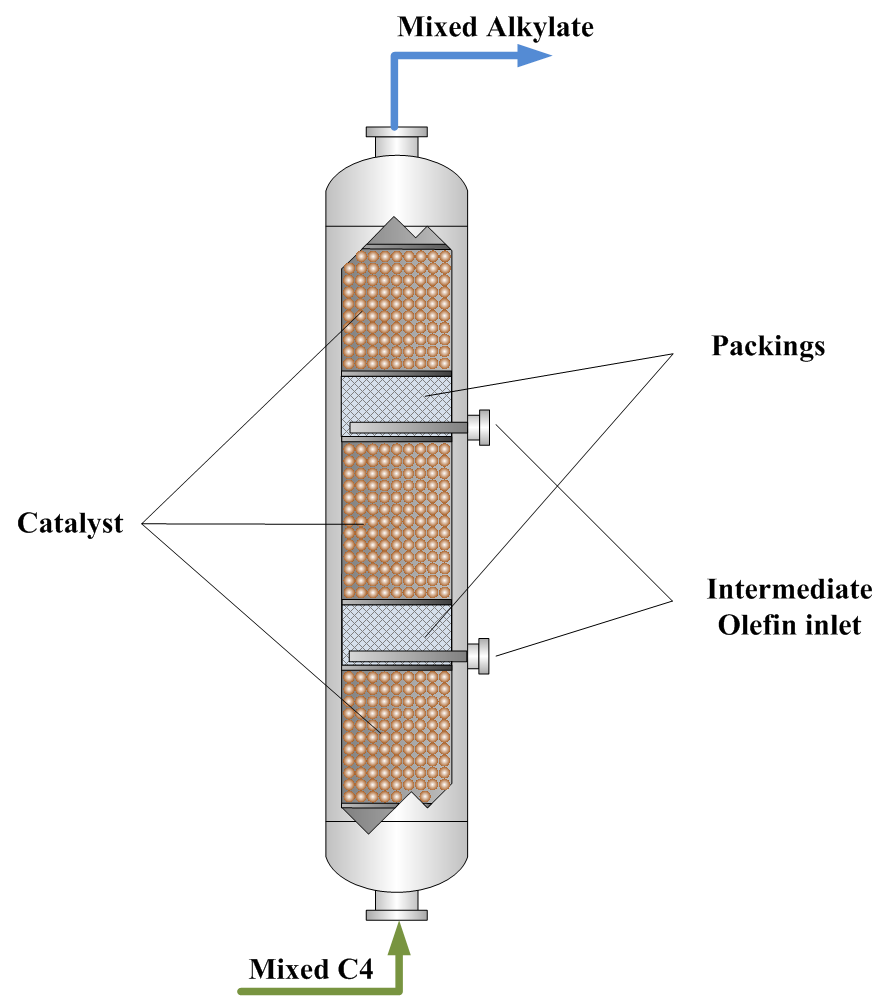Importance of alkylation stems from gasoline manufacture for which it is essential in providing a high-octane, low density and volatility blending component virtually without sulfur and nitrogen. Researchers form Center of Ionic Liquid and Green Engineering in Institute of Process Engineering (IPE) paid their attention to the plant-wide optimization of solid acid catalyzed alkylation (SCA) process, which is one of the most promising technology in replacing the conventional H2SO4 scheme.
Reactor modeling is the core of alkylation process simulation. It is found major inaccuracy in simulation is brought in by the contradiction of the heterogeneous nature in 2-butene concentration propagation and the homogeneous assumption of Euler's method, which can't be neglected due to a secondary side reaction, according to the kinetics. By employing the Lagrange's method, numerical problems that originate from nonlinear reactions and Eulerian girds are neutralized.

Fig 1 Flowchart for fixed bed alkylation process (Image by LI You)
Based on the simulation, a flowchart for SCA is proposed and the process is optimized with economic models. Researchers propose that P/O ratio should be larger than 400 to achieve a selectivity above 80% (2-butene to C8). And alkylate reflux are necessary to maintain the P/O ratio. And it is important to add a pre-mixer before the feed enters the reactor. To improve the mixing, IPE also proposed a patent for column like mixer(China Patent 201710233282.3), which is intensified by inert gas recirculating. Finally, a conceptual design of multi-inlet axial bed is discussed. The study proved that the fixed bed based SCA has a simple flowchart and is easy to operate, which is suitable for industrial alkylation process.

Fig 2 Influence of isobutane feed flux and alkylate reflux ratio on profit (Image by LI You)

Fig 3 Conceptual design multiple inlet fixed bed (Image by LI You)
In sum, proposing the modeling and simulation techniques, IPE's researchers have laid the numerical foundation of SCA process, which may have a long term impact on the alkylation industry.
Their work has been published in Fuel.
Media Contact:
LI Xiangyu
International Cooperation Office, Institute of Process Engineering, Chinese Academy of Sciences, Beijing 100190, P. R. China.
E-mail: xiangyuli@ipe.ac.cn
Tel: 86-10-62551358
 Search
Search




 京公网安备110402500047号
京公网安备110402500047号